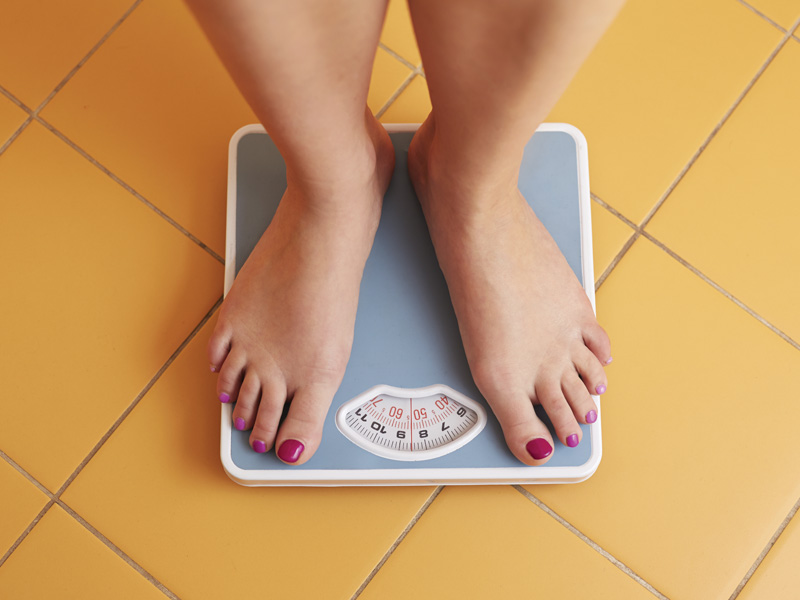The human body is an incredibly intricate system, one that depends largely upon a delicate balance of natural chemicals and complex interactions that occur between them to maintain smooth and efficient function of its many subsystems, which, in turn, maintains optimal health and wellness. However, when body chemistry is not in balance, especially when it comes to hormones, a wide variety of issues can arise. Unexplained weight gain is one of those issues and is a very common and frustrating problem faced by many women today.
Medical science is only just beginning to understand some of the thousands of complex chemical reactions that occur in the body and how they impact health, but we do know that there is a relationship between insulin, metabolism and body fat. This link is a very common cause of unexplained weight gain in women who consume the typical low-fat, high-carbohydrate diet that includes an abundance of processed foods, since this type of diet can eventually lead to a metabolic condition called insulin resistance.
Insulin Resistance Can Lead to Weight Gain
Insulin is a hormone that plays a major role in metabolism, helping the body’s cells absorb glucose from the bloodstream to be used for energy. In insulin resistance, the body loses the ability to use insulin effectively, impairing glucose absorption into the cells. When the cells cannot absorb the amount of glucose they need, the body kicks into starvation mode, storing away a higher percentage of calories as fat, causing weight gain without any increase in calorie consumption.
Weight Gain and Stress
Another known link between hormones, metabolism and body-fat involves stress. Stress hormones are released into the body in response to stress. During prolonged periods of stress, levels of these hormones remain elevated. The body interprets long-term stress responses as famine, which triggers it to slow the metabolism, going into starvation mode to conserve resources in much the same way as it does with insulin resistance, adding to the body’s fat stores.
Many women have both dietary and stress issues, causing imbalances in both insulin and stress hormones, a sure recipe for weight gain. Additionally, high-carbohydrate diets and high stress levels can lead to fluctuations in blood glucose and serotonin levels, which can prompt food cravings as the body attempts to stabilize those levels. This creates a vicious cycle in which a person is driven to snacks and caffeine in an attempt to make themselves feel better, actions that actually worsen the underlying problems and cause even more weight gain.
Estrogen Production and Slowed Metabolism
Yet another link between hormones and metabolism is the relationship between estrogen levels and body fat, which is often a factor in unexplained weight gain during perimenopause and menopause. During perimenopause, estrogen levels fluctuate widely, and in menopause, estrogen is diminished significantly as the ovaries drastically slow production. The body needs estrogen for a number of functions, including the maintenance of bone mass, so it will begin to tap secondary sources of estrogen as it struggles to maintain hormonal balance. One of those other sources is body fat, so the body will try to conserve that resource by slowing metabolism.
Any one of these three mechanisms can spur unexplained weight gain, causing women to pack on the pounds while consuming the same daily diet that once kept them slim and trim. For women who have more than one of these hormonal issues working against them, the strictest diet and exercise plan can become a frustrating struggle that yields few results. However, having these issues properly diagnosed and treated can help, so if your best efforts at beating the bulge with diet and exercise have failed, seeing a doctor is your best next step.







